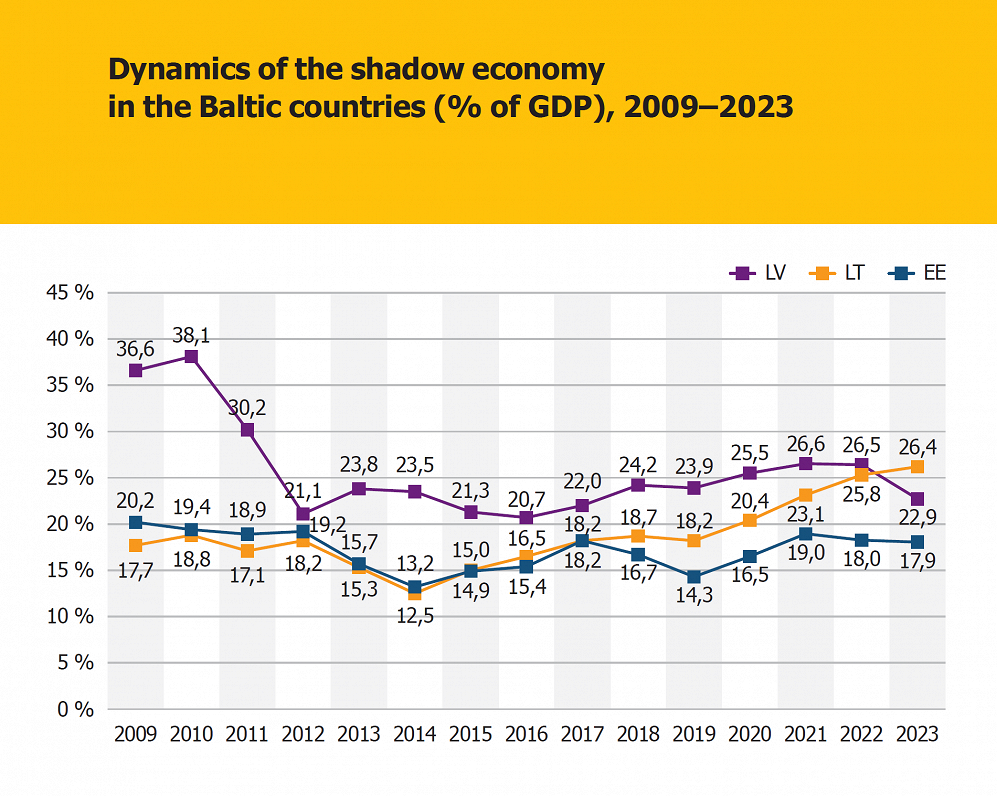The positive news about the negative direction of the gray economy comes from Sauka's annual research into the shadow economy, which has become an important indicator. Recent years have seen a worrying expansion of the gray economy:
- 20.7% of GDP in 2016
- 24.2% of GDP in 2018
- 25.5% of GDP in 2020
- 26.6% of GDP in 2021
- 26.5% of GDP in 2022
- 22.9% of GDP in 2023
The latest data reveals that the volume of the shadow economy in Latvia decreased in 2023 to 22.9% of GDP, a decrease of 3.6 percentage points compared to 2022. In Estonia, there was a slight reduction in the shadow economy for 2023, now at 17.9% of GDP, down from 18.0% in 2022. In contrast, Lithuania saw an increase in its shadow economy in 2023, rising by 0.6 percentage points compared to 2022, reaching 26.4% of GDP.
Sauka, however, pointed out that such a development had already been predicted: "I think that one of the explanations is that the level of feeling has stabilized. The Covid-19 crisis, if not completely overcome, then has calmed. The Russian war in Ukraine is still going on, but also the processes related to it – logistics, delivery of goods – have somewhat adjusted themselves. Yes, I think the entrepreneurs have adjusted," explained the researcher.
"And is the first time since we have been studying the size of the shadow economy, since 2009, that we have overtaken Lithuania. In other words, we have a smaller shadow economy than Lithuania. Estonia is still a little ahead of us, but it is not very far. As a general trend, it is positive," Sauka said.
























